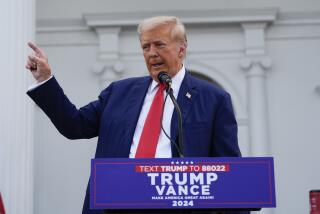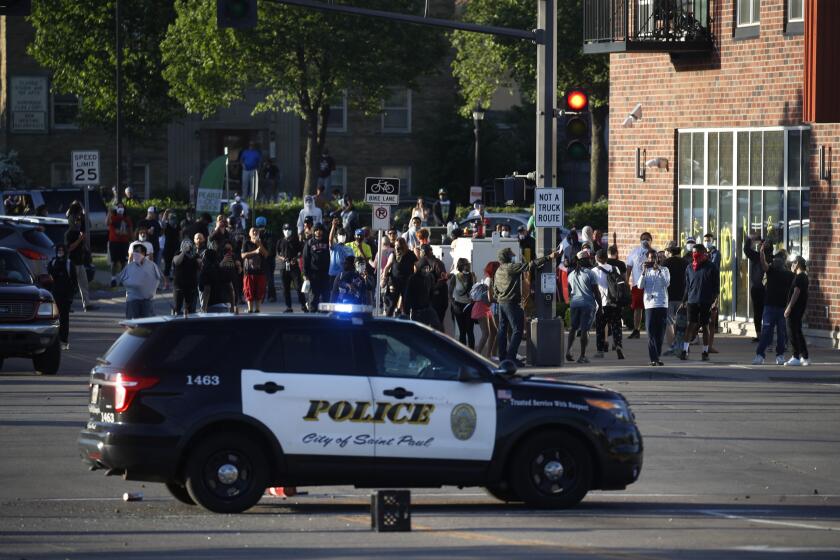GOP Filibuster Forces Byrd to Abandon Effort This Year : Campaign Finance Bill Stalled in Senate
Senate Democrats on Tuesday failed for the seventh time to break a three-month-long Republican filibuster against sweeping legislation on campaign finances, and Majority Leader Robert C. Byrd (D-W. Va.) was forced to abandon for this year his effort to curb spiraling political spending.
“We will come back. . . . We will return next year,” Byrd vowed as the Senate voted 51 to 33 to cut off debate, short of the 60 votes necessary to end the standoff. “The opponents of (the bill) will return as well,” countered Sen. Mitch McConnell (R-Ky.), one of those who led the fight against the measure.
The cost of the average Senate campaign has almost tripled since 1980, to $3.1 million last year. It has reached a point, supporters of the measure noted, where a senator must scramble to raise an average of $10,000 a week during a six-year term in order to run for reelection.
$30-Million Senate Race
In large states, where candidates rely heavily on expensive television advertising to reach millions of voters, the costs run even higher: California’s Sen. Pete Wilson, a Republican, predicted that he and his opponents in the next Senate race together will spend as much as $30 million.
Byrd, who himself has been criticized for his fund-raising tactics, described the growing expense of campaigning as “a political AIDS virus” that is certain to lead to “a scandal of tremendous proportion.”
“Can (opponents of the legislation) honestly say it is healthy for the system that competition for the highest offices in this land . . . are based on which candidate can raise the most money?” asked Sen. David L. Boren (D-Okla.), another backer of the measure.
The bill would set voluntary spending limits in Senate races according to a formula based on a state’s population. Candidates who agreed to abide by those limits but faced opponents who did not would be eligible to receive public funds. The bill would add other incentives for staying within the limits, such as reduced rates for postage and broadcast time.
To meet criteria set by the Supreme Court’s 1976 decision that a mandatory spending limit would violate the First Amendment, compliance with any such limit would have to be voluntary.
Republicans’ Objections
Republicans agreed that campaign costs have risen out of control, but complained that the taxpayers should not be asked to spend millions of dollars to finance political campaigns.
They also contended that the legislation was written to make it easier for Democrats to maintain their majorities in the House and Senate. A Republican-backed alternative bill would have raised the limits on contributions from individuals, with which Republicans have usually fared well, and lowered them for political action committees, a source of support where Democrats have the advantage.
McConnell said that the PACs will be behind any “scandal that is waiting to happen” and added that “the Democrats are not willing to do anything about them.”
The Democratic-sponsored measure would impose overall limits on the total amount of money that a candidate could receive from PACs, but would not change the current limit of $5,000 on individual donations made by PACs.
Since June, Byrd has tried seven times to break the filibuster, which is said to have set a record. Each vote produced almost the same tally.
Byrd acknowledged during the debate that he has been forced to join what he described as “the money chase.” Earlier this year, he came under sharp criticism for charging several hundred lobbyists $10,000 each for the opportunity to meet with him on a regular basis.
More to Read
Get the L.A. Times Politics newsletter
Deeply reported insights into legislation, politics and policy from Sacramento, Washington and beyond. In your inbox three times per week.
You may occasionally receive promotional content from the Los Angeles Times.






